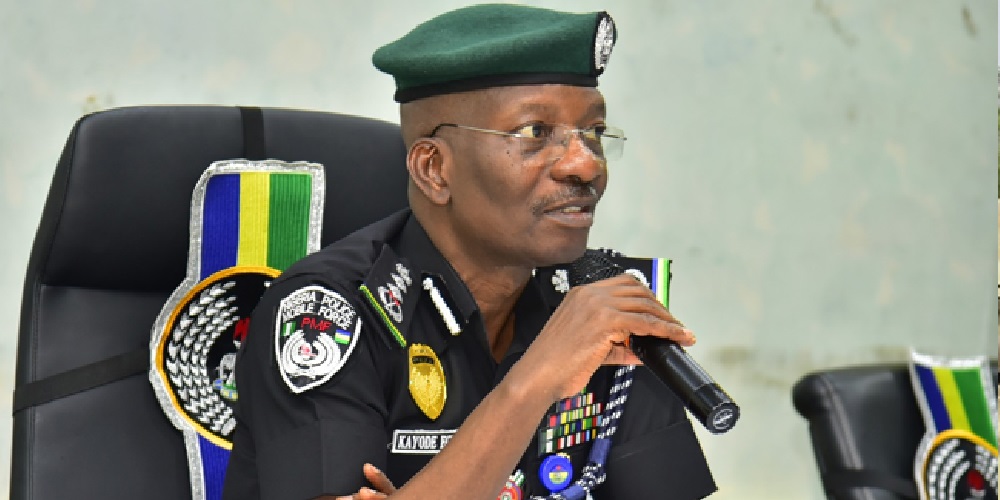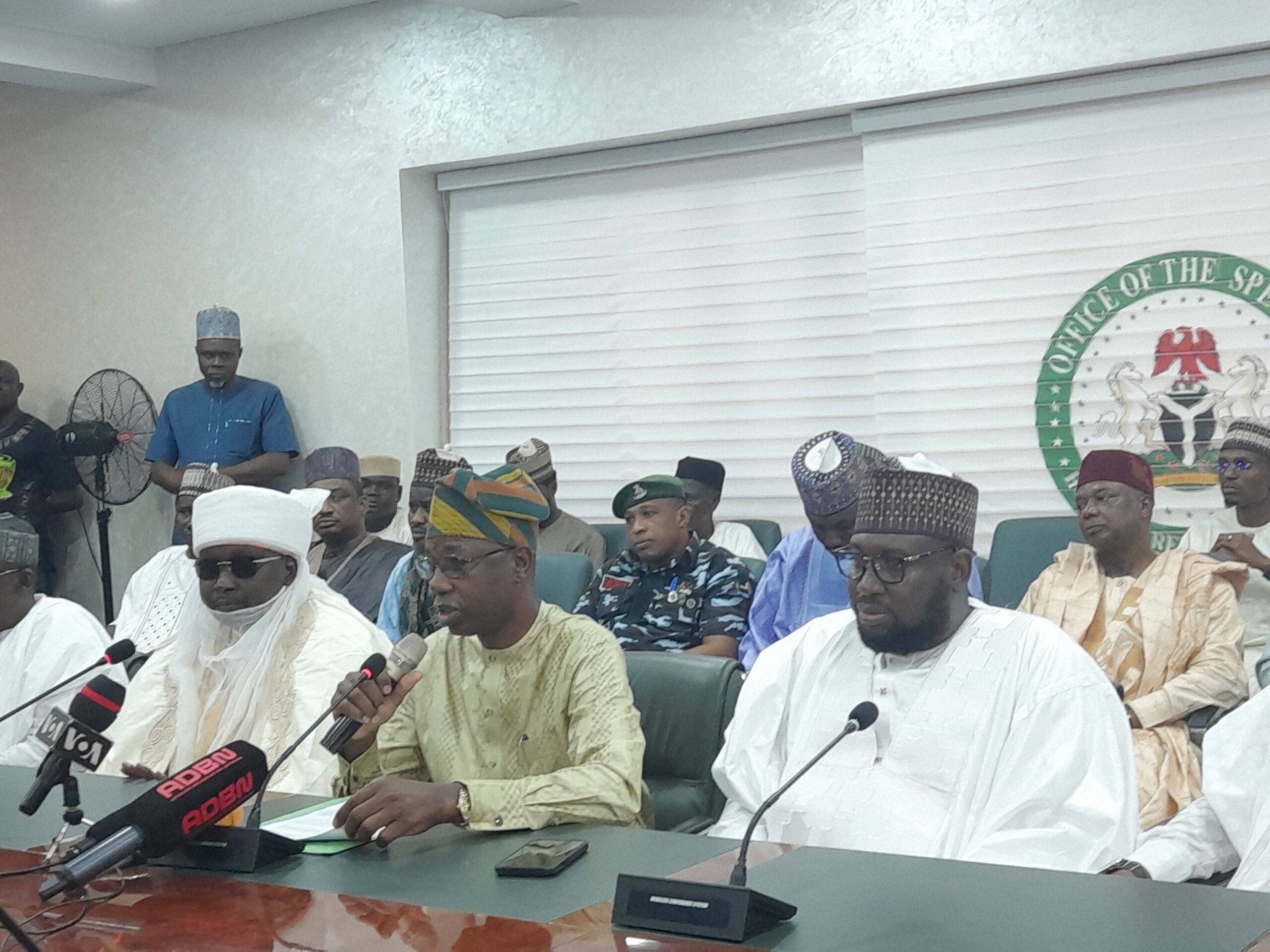News
Tanker drivers threaten to stop petrol lifting Monday

Nigeria may witness another round of fuel scarcity as the Nigerian Association of Road Transport Owners, on Thursday, vowed to stop lifting petroleum products beginning from next week Monday due to the high cost of operations.
NARTO members have repeatedly raised concern over the high cost of diesel required to power their trucks for the transportation of petroleum products across the country.
Oil marketers told our correspondent on Thursday that diesel price is between N1,250 to N1,400/litre depending on the area of purchase.
NARTO’s President, Yusuf Othman, in a statement he issued in Abuja on Thursday, said the statement was an official announcement from the association’s headquarters that members of the group would park their trucks from Monday.
“Why? It is because what we spend on operations is more than what we get in total, both in local and bridging,” he stated.
Othman said NARTO members had being operating at a loss and it was no longer sustainable for them to endure the losses.
“We will have to suspend operations latest from now till on Monday. We cannot continue to operate at a loss. Most people have parked. A lot more are going to park. But from the point of the association itself, we are going to suspend operations on Monday,” he stated.
He said NARTO’s efforts to get the intervention of key stakeholders, the Federal Government and industry operators had not yielded positive results.
The NARTO president said the association had written letters on the unbearable cost of operations to the Chief of Staff to President Bola Tinubu; Minister of Petroleum Resources; Department of State Services; Nigerian Midstream and Downstream Regulatory Authority; Nigerian National Petroleum Company Limited; and oil marketers.
“We have written letters up to the level of the Chief of Staff to the President. We have written to the Minister of Petroleum Resources (Oil). We have written to the Director-General of SSS. We have written to NNPC’s boss. We have written to the NMDPRA. We have written to the major marketers,” Othman stated.
He stressed that despite the letters, there has been “no response.”
Analysing the market situation, which the members have endured for several months, he stated that the same freight rate that applied when former President Muhammadu Buhari was in ruling, was still subsisting.
“The Lagos to Abuja freight rate that was implemented when the dollar was N650 is still retained now that dollar is N1,615. Everybody is aware that all our consumables in terms of operation are not produced in the country.
“So, by virtue of the rate of dollars, every consumables has increased. But the freight they are paying us has been the same since Buhari’s time. So how is that feasible? During Buhari’s time, one dollar was N650. Today, dollar is N1,615. The average freight from Lagos to Abuja is N32,” he stated.
Othman further explained that “what I mean by local is that when you load in Lagos, you discharge in Lagos. And bridging means that when you load from Lagos, you come to Abuja. Lagos to Lagos, we are paid N120,000.
“AGO (diesel) alone to distribute fuel within Lagos is N140,000 because it is N1,400/litre. So, they give you N120,000 and you spend N140,000. So how do you want to operate? You’ve not talked about the cost of vehicles, cost of loading, driver’s allowance. That is for local.”
He stated that the cost of moving products out of Lagos or Warri to other states was far higher than what the government was paying to tanker drivers as bridging claims.
The government pays an agreed sum to transporters of petroleum products as bridging claims in order to ensure equality in the pump prices of these products across states, though this has not been the case.
NARTO is the umbrella organisation for commercial vehicle owners in Nigeria. The association represents the interests of those involved in haulage of petroleum products, general cargoes and passenger movement within the country and the West African sub-region.
NARTO has expressed several concerns regarding transporting petroleum products in Nigeria, impacting both their members and the overall efficiency of the process.
It has complained of poor road conditions, as frequent potholes, dilapidated bridges, and lack of proper maintenance lead to increased wear and tear on vehicles, higher running costs and longer journey times.
The association has also raised concern about traffic congestion, particularly around ports and depots, as this adds significantly to delivery delays and further increases operational costs.
On inadequate parking facilities, NARTO had stated that the lack of safe and designated parking areas often forced drivers to park in unsafe locations, leading to security risks and fatigue.
It had also raised concerns about the multiple checkpoints in Nigeria, as numerous security checkpoints could cause unnecessary delays and harassment for drivers.
Another issue is delayed payments, as late payments from oil marketers create cash flow problems for transporters.
Also the association has called for safety, because the theft of petroleum products, pipeline vandalism and other security threats create risks for drivers and equipment.
On policy and regulatory concerns, NARTO had observed that some depots limit access to specific transporters, impacting competition and efficiency.
It had stated that inconsistent or ambiguous regulations could lead to confusion and enforcement challenges, adding that transporters often struggled to access affordable financing for vehicle maintenance and upgrades.
News
Finally, IGP approves hunger protests across Nigeria

The Nigerian police has finally approved the planned nationwide protests and outlined conditions for participants.
The Inspector General of Police, Kayode Egbetokun, revealed this on Friday while addressing journalists in Abuja.
He urged all groups planning to participate in the proposed nationwide protest to submit their details to the Commissioners of Police in their respective states.
The police boss said this was to ensure the protest was peaceful.
Egbetokun said, “We acknowledge the constitutional right of Nigerian citizens to peaceful assembly and protest.
“However, in the interest of public safety and order, we urge all groups planning to protest to provide necessary details to the Commissioner of Police in the state where the protest is intended to take place.
“To facilitate a successful and incident-free protest, they should please provide the following information: state the proposed protest routes and assembly points; expected duration of the protest; and names and contact details of protest leaders and organisers.”
The police boss said the information expected from the organisers also include measures to prevent hijacking by criminal elements, as well as key identifiers for possible isolation of potential troublemakers.
By providing the information, he said, the police will be able to deploy adequate personnel and resources to ensure public safety.
He said the police needed to know the specific routes and areas for the protest to avoid conflicts with other events or activities.
Mr Egbetokun said the police will “establish clear communication channels with protest leaders to address any concerns or issues that may arise; minimise the risk of violence, property damage, or other criminal activity.
“We encourage all protesters to cooperate with the police, obey the law, and adhere to global best practices for peaceful assembly to guarantee a safe and successful exercise of their rights.
News
Reps North-West Caucus Beg Youths, Citizens In The Region Not To Join Planned Protest

News
Reps Applaud FCT Minister, Wike On AICL Improved Revenue, Infrastructure

-

 News20 hours ago
News20 hours agoIwuanyanwu was a Heavyweight in all ramifications-Abaribe
-

 News20 hours ago
News20 hours agoTinubu, Southern Govs Mourn Iwuanyanwu
-

 News19 hours ago
News19 hours agoSokoto Governor, Aliyu’s Wife Holds Lavish Birthday As Guests Spray Dollar Notes On Her Amid Hunger, Hardship
-

 News21 hours ago
News21 hours agoIGP Orders DPOs, Their Men To Storm Vulcanizer Shops Ahead Of Planned Nationwide Protest
-

 News19 hours ago
News19 hours agoProtest: President Tinubu In Closed-door Meeting With Traditional Rulers (Video)
-

 News21 hours ago
News21 hours agoTinubu’s Presidency Is Failing Nigerians – Afenifere
-

 News16 hours ago
News16 hours agoNationwide protest: ‘Airport Is Filled Up, Govs, Senators, Reps, Ministers Traveling Abroad’ — Fayose
-

 Metro20 hours ago
Metro20 hours ago8 School Children Rescued In Lokoja Auto Crash







